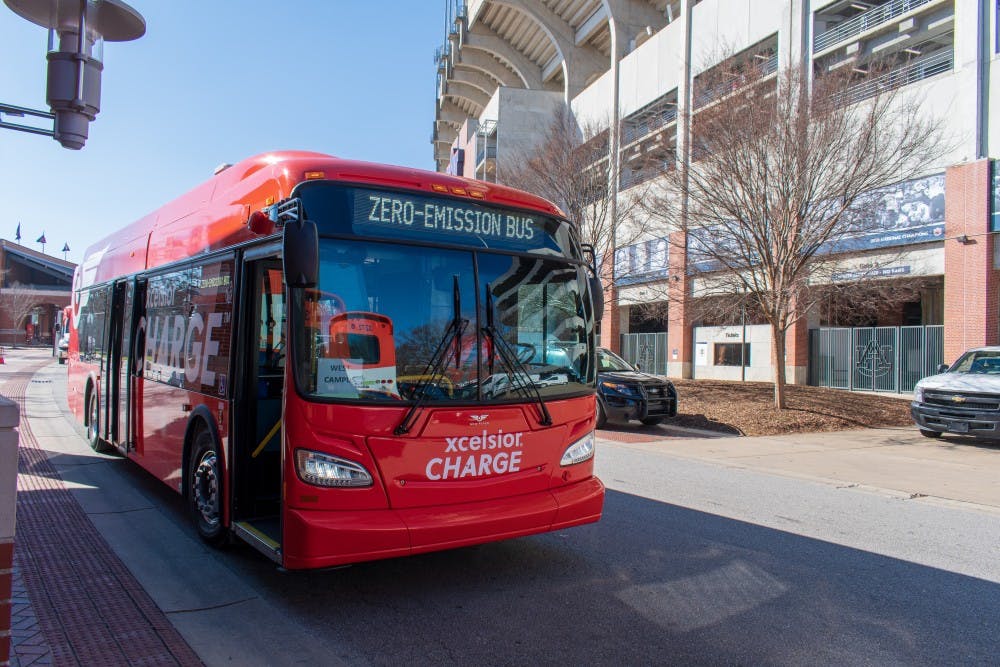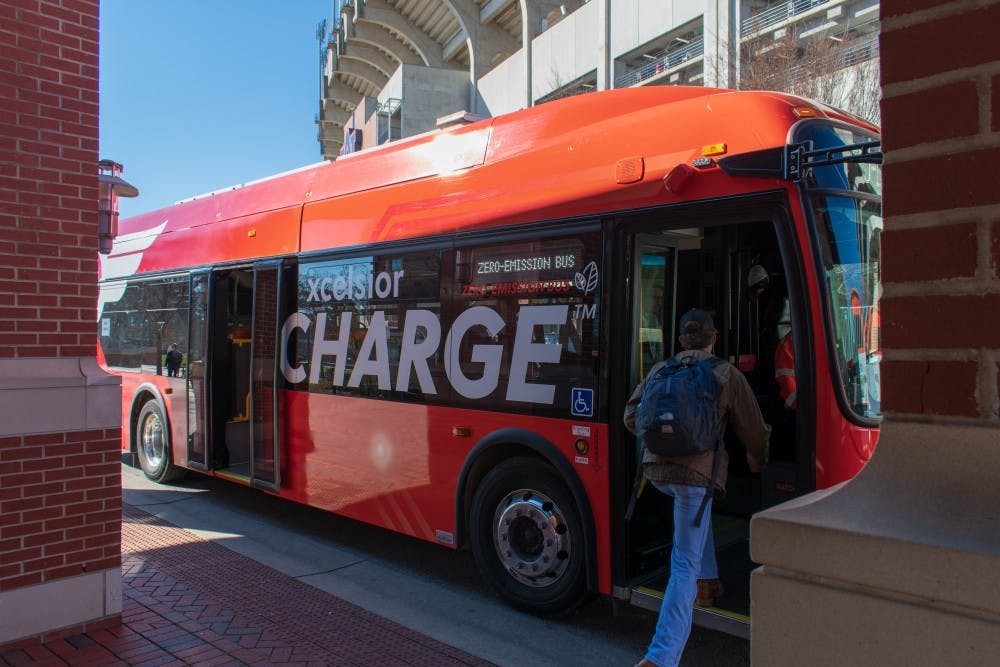Tiger Transit is testing electric buses from a couple manufacturers to potentially bring them to campus as a part of the next contract.
The University’s contract with First Transit runs out in August 2021, and Tiger Transit has to write up the request for proposal of the new contract in the coming months.
The contract will be for eight years.
“A certain percentage of fleet will be electric,” said Don Andrae, director of parking services. His job also includes overseeing transportation. “What we don’t know is how much of the percent of the fleet.”
Andrae would like to see an all-electric bus fleet at some point in the future. In preliminary discussions, they have also talked about having a certain percentage of the buses run on alternative fuel.

“We’re just trying to see in pulling together the next contract what we want to consider to make Auburn more sustainable, more efficient and able to carry more passengers,” Andrae said.
This week, they are testing an electric bus with New Flyer, a bus manufacturer based out of Anniston, Alabama. During the week of Jan. 28, they will be testing a bus with Proterra, a specifically electric bus maker based out of North Carolina.
A New Flyer electric bus ran on the North Auburn route on Monday for five hours and used approximately 30 percent of the battery life.
On Tuesday, the bus ran on the Opelika Road route for 9 and a half hours from 7 a.m. to 4:30 p.m. and used about 42 percent of its potential battery life.
The bus ran on the West Campus route on Wednesday.
Andrae said electric buses would be more expensive to purchase than regular buses, but it is cheaper to charge the battery of an electric engine than to buy fuel for a regular bus.
Stanford University was one of the first campuses to go to a full electric-bus fleet, and Tiger Transit has been talking with colleagues there to see how their transition went.
“The person out there told me the cost is more upfront, but with the reduction in maintenance and in the fuel cost, they are breaking even over the course of the year if they had bought regular buses,” Andrae said.
Both the regular buses and the electric bus are 35 feet long, which is the maximum length Tiger Transit will use, based on some of the turns they have to make throughout the city.
Current buses are able to carry about 50 passengers, but because of extra standing room, the electric bus being tested is able to carry up to about 68 passengers.
The electric bus has both front and back doors, so passengers can enter on one end and exit on the other end at the same time.
Andrae rode on the bus from New Flyer and said it was a surprisingly smooth and quiet ride. They also have USB ports at every seat, and it has WiFi capabilities.
Because the contract will be for eight years, Andrae wants to write flexibility and leeway into the contract, considering how quickly the technology is advancing.
“The hardest part about writing a new proposal for bids is how we can have enough in there to say we want to be able to do things if the industry changes,” Andrae said.
The University recently installed 15 electric-car charging stations across campus after Alabama Power came forward and offered to install them for free.
Do you like this story? The Plainsman doesn't accept money from tuition or student fees, and we don't charge a subscription fee. But you can donate to support The Plainsman.





